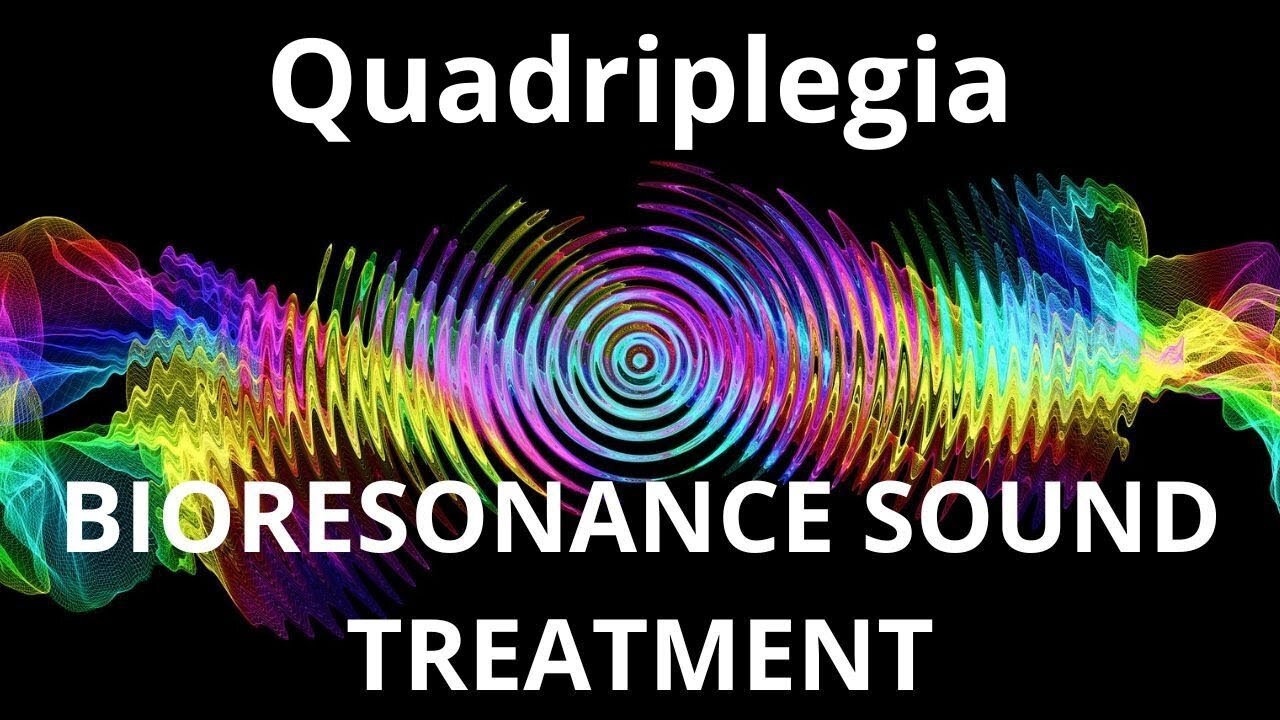Premium Only Content

Quadriplegia_Sound therapy session_Sounds of nature
#resonantfrequencytherapy #quadriplegia #adjunctivetreatment #conventionalmedicine #holisticapproach #neurorehabilitation #motorfunction #muscletone #painmanagement #qualityoflife #complementarytherapy #alternativetreatment
Quadriplegia, a condition characterized by the loss of motor function and sensation in all four limbs, can significantly impact an individual's quality of life. While conventional medicine plays a crucial role in managing the symptoms of quadriplegia, incorporating alternative therapies like resonant frequency sound therapy can offer additional benefits. In this article, we will explore the potential advantages of using resonant frequency sound therapy as an adjunctive treatment for quadriplegia, in combination with conventional medicine, to enhance motor function, muscle tone, pain management, and overall well-being.
Resonant frequency sound therapy utilizes specific frequencies of sound waves to stimulate the body's natural healing mechanisms. By entraining the body's cells and tissues to their resonant frequencies, this therapy aims to restore balance and promote overall well-being.
Combining resonant frequency sound therapy with conventional medicine offers a comprehensive and holistic approach to managing quadriplegia. This complementary therapy can work synergistically with traditional treatments, enhancing their effectiveness and addressing the multifaceted challenges of quadriplegia.
Resonant frequency sound therapy has shown potential in improving motor function in individuals with quadriplegia. By targeting the specific frequencies associated with the affected areas, this therapy can stimulate neural pathways, promote neuroplasticity, and potentially facilitate muscle activation and movement. This can lead to enhanced motor control and functional abilities.
Quadriplegia often results in muscle spasticity or flaccidity, which can further limit mobility and independence. Resonant frequency sound therapy has been found to have muscle relaxing effects, helping to reduce spasticity and improve muscle tone. This can lead to increased range of motion, better postural control, and improved overall mobility.
Chronic pain is a common challenge faced by individuals with quadriplegia. Resonant frequency sound therapy has been shown to have analgesic properties, providing relief from pain and discomfort. By targeting the specific frequencies associated with pain perception, this therapy can help reduce pain intensity and improve overall comfort.
Quadriplegia can have a significant impact on an individual's emotional well-being and overall quality of life. Resonant frequency sound therapy promotes relaxation, reduces stress, and enhances emotional well-being. By providing a sense of calm and promoting positive emotions, this therapy can contribute to a better quality of life for individuals living with quadriplegia.
Conclusion:
Resonant frequency sound therapy, when used as an adjunctive treatment alongside conventional medicine, offers potential benefits for individuals with quadriplegia. By enhancing motor function, improving muscle tone, managing pain, and promoting emotional well-being, this complementary therapy can contribute to a more comprehensive approach to quadriplegia management.
In my store you can purchase unique medicines:
https://store11998180.company.site/
You have the opportunity to support the channel:
https://destream.net/live/RadSiarAl/donate
-
 16:48
16:48
BIORESONANCE SOUND THERAPY
10 days agoSamuel Barber Sonata for Cello and Piano
852 -
 LIVE
LIVE
JULIE GREEN MINISTRIES
1 hour agoLIVE WITH JULIE
16,759 watching -
 LIVE
LIVE
Welcome to the Rebellion Podcast
11 hours agoDon3po is Live - WTTR Podcast Live 9/4
477 watching -
 13:43
13:43
The Kevin Trudeau Show Limitless
22 hours agoClassified File 3 | Kevin Trudeau EXPOSES Secret Society Brainwave Training
44.5K9 -
 LIVE
LIVE
The Chris Salcedo Show
12 hours agoAmericans Are Tired Of Leftists & Fake-GOP Who Cater To Them
665 watching -
 LIVE
LIVE
Game On!
19 hours ago $0.94 earnedFootball IS BACK! Cowboys vs Eagles Opening Night Kickoff!
3,405 watching -
 LIVE
LIVE
The Bubba Army
22 hours ago#1 Documentary IN THE WORLD! - Bubba the Love Sponge® Show | 9/04/25
2,894 watching -
 39:31
39:31
Her Patriot Voice
14 hours ago $1.07 earnedBlack Conservative Surrounded + ROBBED By Leftists!
4.27K22 -
 13:25
13:25
The Gun Collective
14 hours agoWOW! A LOT of new GUNS just dropped!
12.7K7 -
 LIVE
LIVE
BEK TV
23 hours agoTrent Loos in the Morning - 9/04/2025
212 watching